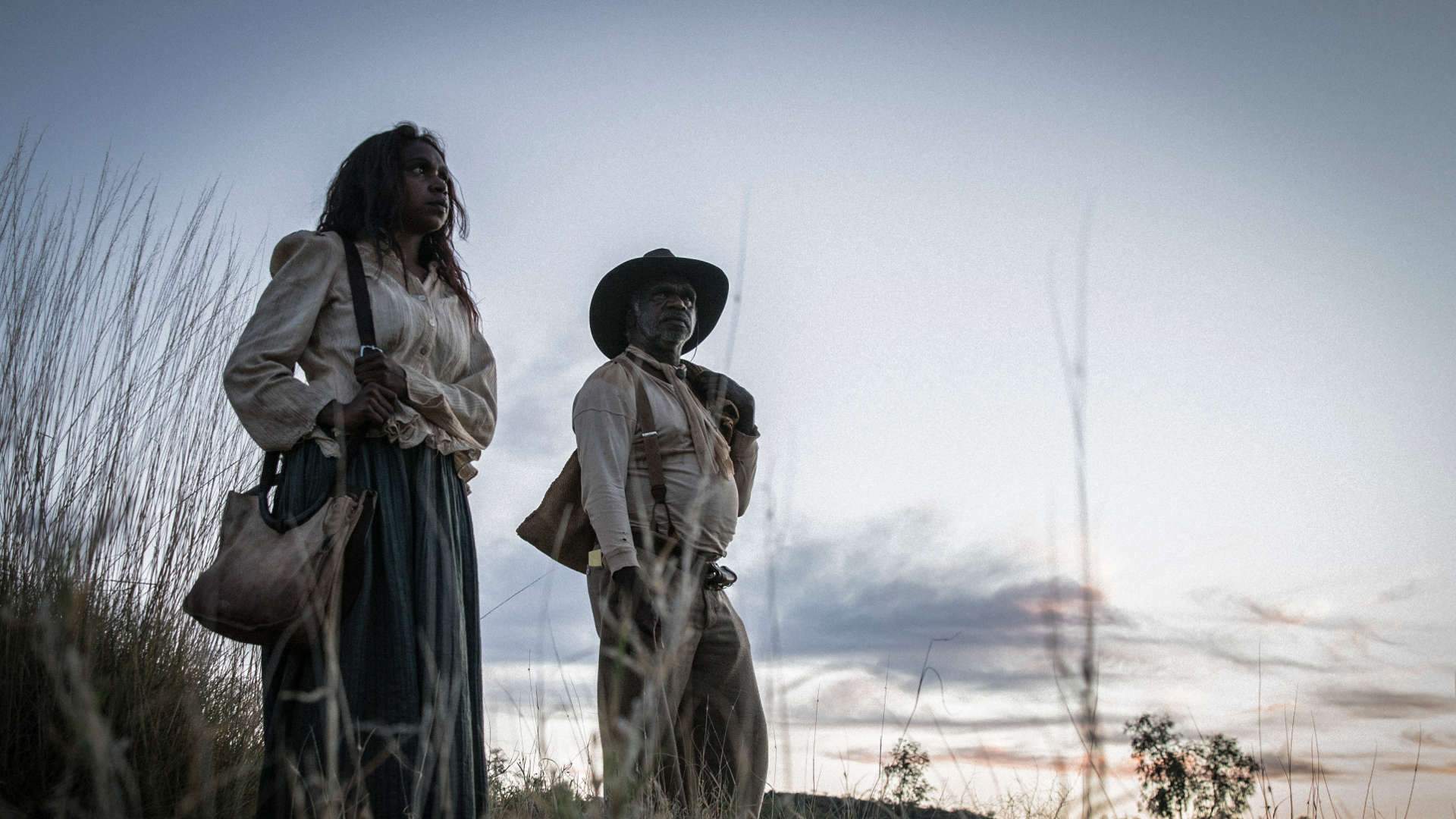Sweet Country
A stunning Australian Western that explores our nation's long history of racial prejudice.
Overview
UPDATE, November 9, 2020: Sweet Country is available to stream via Netflix, SBS On Demand, Google Play, YouTube Movies and iTunes.

In Sweet Country, the sun streams down on Australia's ochre-hued landscape, its scorching presence felt in every frame. At the helm of just his second narrative feature, director and cinematographer Warwick Thornton (Samson and Delilah) lets his images swelter with the outback heat, crafting a film where stifling temperatures and skyrocketing tempers go hand in hand. Indeed, if a movie could drip with beads of dusty, angry sweat, this one surely would. It's hot, rough and tough in the Northern Territory in the 1920s, but the real source of conflict and oppression — the real fire boiling in the movie's belly — is the nation's racial disharmony.
Discrimination, intolerance and the turmoil ignited by both sit at the centre of the Indigenous western, which Thornton fashions after the genre's greats while ensuring that its local heart always beats strong and true. If the film's gold-and-rust sights paint a beautiful yet blistering picture, then its accompanying perspective proves not just fiery but positively searing. Though Sweet Country peers back almost a century, to a time when Australia was caught between its colonial past and the gleaming promise of a modernised future, the attitudes and struggles it explores remain painfully relevant today.
In three distinctive parts comprising an astonishing whole, strained relations between white settlers and Aboriginal workers bubble to the fore — firstly, as confrontation brews across a trio of remote properties; then, in a chase through the region's vast surroundings; and finally in a law-and-order showdown. It all begins when black stockman Sam Kelly (Hamilton Morris) kills cruel, violent station owner Harry March (Ewen Leslie) in self-defence. With little chance of a fair trial, he's forced to flee through the scrub and desert with his wife Lizzie (Natassia Gorey-Furber). Sergeant Fletcher (Bryan Brown) is soon on their trail, with assistance from Indigenous tracker Archie (Gibson John), kindly preacher Fred Smith (Sam Neill) and his neighbour Mick Kennedy (Thomas M. Wright).
As the slow-building tale unfurls, screenwriters Steven McGregor (Redfern Now) and David Tranter (Thornton's previous sound recordist) insert memories and foreboding glimpses of events to come. Here, playing with the movie's timeline provides emotional context, a crucial touch in a film that tackles race relations head on yet never colours with just black and white. Sweet Country might dive into a climate of pervasive prejudice and persecution in a quietly confronting and sometimes brutal fashion, but it also knows there's no simple way to fix Australia's still-evident divide. That awareness doesn't make the end result any less impassioned; in fact, it makes it even more so.
That said, while the movie's message echoes loudly, Thorton lets his images do much of the talking. From views spied through doorways to shadows falling on furrowed brows, every ravishing shot seethes with harsh truths. Like fellow great Indigenous filmmaker Ivan Sen (Mystery Road, Goldstone), Thornton is a master at layering Aussie scenery with heartbreak and fury that speaks volumes. When dialogue is called for, the cast more than delivers — though none more than exceptional first-timer Morris. Leslie, Brown and especially Neill all play their parts to perfection, but the hurt, sorrow, terror and resignation flickering across Morris' calm face lingers long after the end credits roll. In a piercing, powerful film that deserves to be hailed as a major achievement, that is no mean feat.





